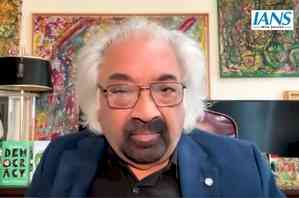Sense of dismay, betrayal: Sandeep Dikshit on Azad's resignation
Congress leader and a member of the G-23, Sandeep Dikshit on Friday hit out at Ghulam Nabi Azad and termed his resignation as betrayal since the group had raised a banner of reforms not revolt.

New Delhi, Aug 26 (IANS) Congress leader and a member of the G-23, Sandeep Dikshit on Friday hit out at Ghulam Nabi Azad and termed his resignation as betrayal since the group had raised a banner of reforms not revolt.
In his letter to Azad, Dikshit said, "I read your letter of resignation, it gave me a sense of dismay and unfortunately then a sense of betrayal."
He said, "The Indian National Congress will be that much weaker without Ghulam Nabi Azad, but the Ghulam Nabi Azad who authored the G 23 letter, not the Ghulam Nabi Azad who authored this resignation."
Dikshit said, "As a Congress sympathiser, Congress worker and then as a Congress MP, I had a great respect for your work and ability whole heartedly and in full agreement signed the letter that you had written to the Congress President, and became a part of what some media people called the G 23.
"The matter we raised in that letter, and the spirit in which many of us signed it and many others supported what was written in it, was in many ways a pathway to revitalise this greatest of political parties, that lies, as you say in your letter also, in its darkest abyss today. But to my mind, we, and in it, had raised the banner of reform, not a banner of revolt."
He said, "When the letter was written, it was believed that the Congress should strengthen itself, will never ever have a personal political future in it.
"Yet it was the sincerity of all of you, and my great hope that both the weight of the suggestions and the commitment towards the Congress of the signatories made this a worthwhile exercise, and elicited hope that it might strike the right chords."
"And therefore it was equally important to remain inside the party, fight both policy and people, whichever and whoever we believed had and were damaging the party."
"But leaving the party unfortunately strengthens the very policies, systems and people that made us write our letter of reform as a demand, as a duty and as our right," he added.



 IANS
IANS 








